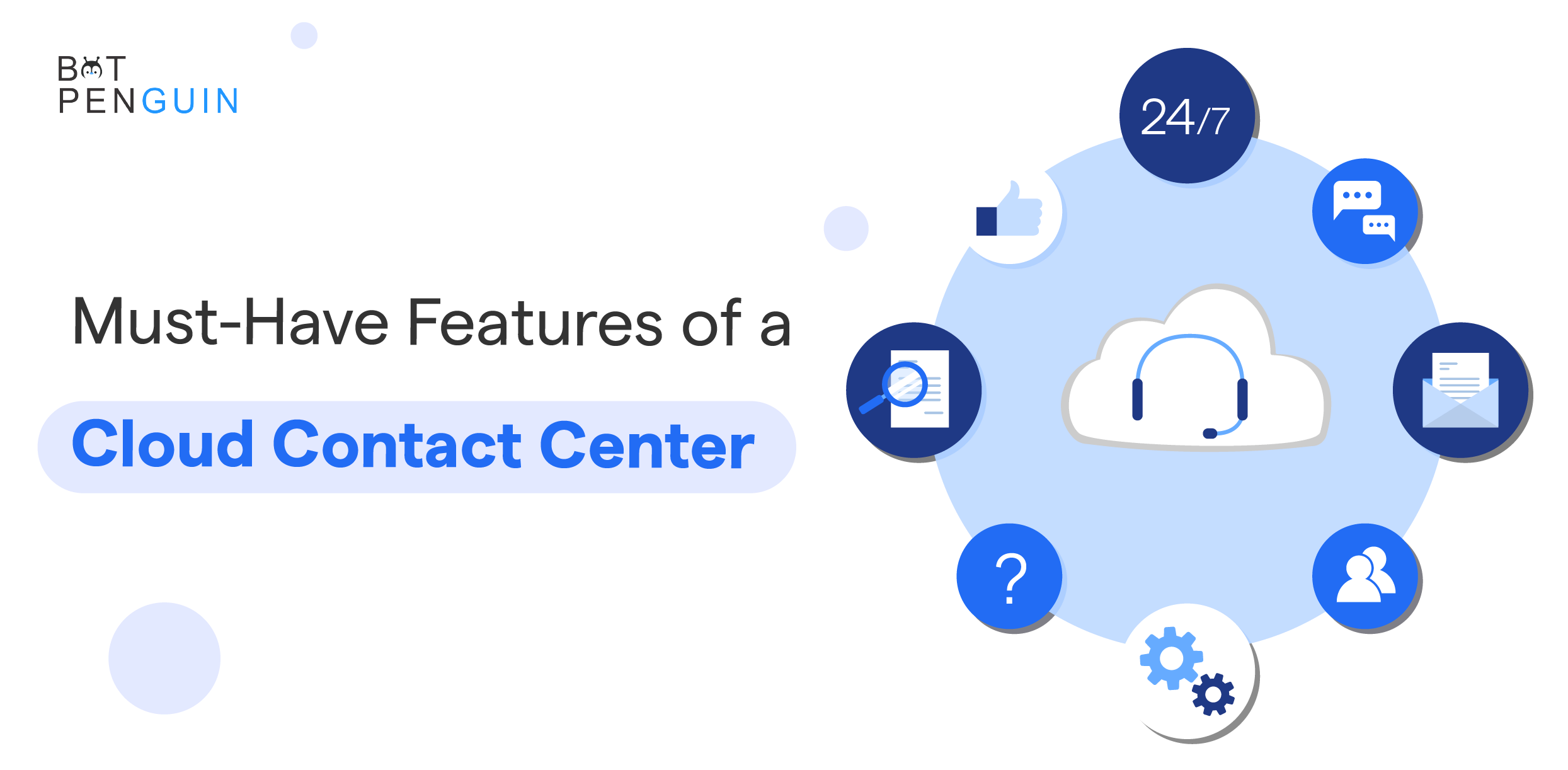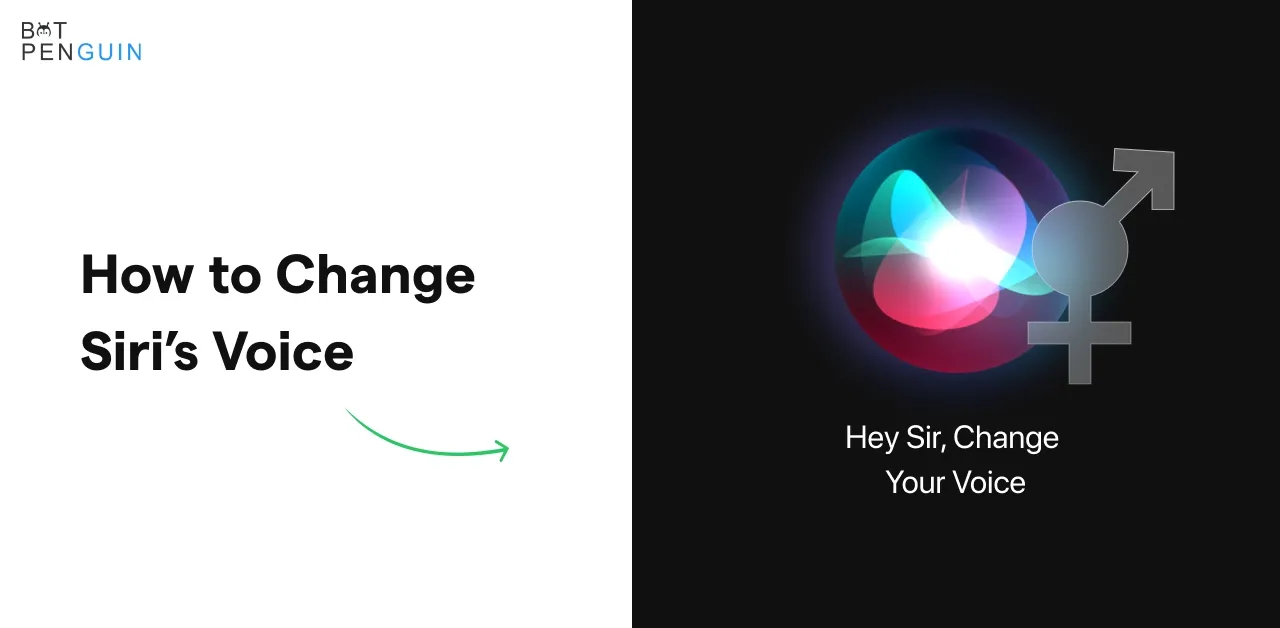Introduction
The cloud contact center market has been rapidly growing, with projections to reach over $20 billion by 2025 due to an increasing demand for efficient customer service and emerging remote work trends.
Businesses globally are reaping the benefits of transitioning their conventional call centers into cloud-based hubs designed to facilitate seamless customer interactions and support. But with the multitude of options available, how do you choose the right cloud contact center for your organization?
In this blog post, we'll explore 5 must-have features of a cloud contact center that will improve service quality, boost agents' productivity, and streamline customer communication across channels, ensuring your business stays competitive in today's ever-changing marketplace.
What is a Cloud Contact Center?
A cloud contact center is a modern customer service solution that operates entirely in the cloud, freeing you from the shackles of traditional on-premises setups.
With a cloud contact center, your customer service team can handle customer interactions through voice calls, emails, chats, and social media. It's like having a superhero team at your disposal, ready to assist customers anytime, anywhere.
Why Do You Need a Cloud Contact Center?
Effective customer service and support are paramount in today's fast-paced and customer-centric world. Let's explore why a cloud contact center is a superhero you need to conquer the customer service arena!
Customer service is no longer just a cost center; it's a competitive advantage. Businesses that prioritize exceptional customer experiences thrive in the market. Adopting a cloud contact center features can provide seamless, personalized, and efficient support, delighting your customers and building long-lasting relationships.
Traditional contact centers often face numerous challenges. The top of the iceberg is difficult infrastructure upkeep, significant upfront expenses, and limited scalability. Excellent service delivery is also hampered by geographical limitations and the inability to swiftly adjust to shifting consumer needs. Time to throw off these restraints and embrace the cloud!
Benefits of Adopting a Cloud-Based Contact Center Solution
Enter the cloud-based contact center, your ticket to customer service greatness. By adopting a cloud contact center solution, you unlock a world of benefits:
Scalability: The cloud contact center features offer unparalleled scalability, allowing your contact center to handle seasonal spikes or unexpected surges in customer interactions effortlessly. Scale up or down with ease, ensuring a consistent customer experience.
Flexibility: Say goodbye to physical limitations. With a cloud contact center, your agents can work from anywhere, whether in the office, at home, or sipping coconuts on a tropical beach. Embrace the flexibility to meet your customers' needs, no matter the circumstances.
Cost Efficiency: Traditional contact centers have hefty upfront investments and ongoing maintenance costs. In contrast, cloud contact centers operate on a subscription-based model, saving you from significant capital expenditures. Pay for what you need when needed, and enjoy cost efficiencies that positively impact your bottom line.
Rapid Deployment: Speed is of the essence in today's dynamic business landscape. Cloud contact centers enable quick deployment, allowing you to go live in a fraction of the time it takes for traditional setups. Get up and running quickly, ensuring you're there for your customers when they need you.
Integration and Innovation: Cloud contact center features seamlessly integrate with various tools and applications, from CRM systems to collaboration platforms. Embrace innovation and leverage these integrations to enhance agent productivity, streamline workflows, and deliver exceptional customer experiences.
The Five Must-Have Features of a Cloud Contact Center
Let's jump into the world of cloud contact centers and explore its five must-have features.
1. Omnichannel Communication
Customers expect to connect with businesses through their preferred channels in today's interconnected world. A cloud contact center features enable you to provide a seamless omnichannel experience. Whether it's voice calls, emails, chats, or even social media interactions, your agents can handle it all from a single platform. It's like being a master multitasker, effortlessly juggling different channels to keep your customers engaged and satisfied.
2. Advanced Call Routing and IVR
Say goodbye to long hold times and frustrated customers. A cloud contact center features empower you with advanced call routing capabilities. By leveraging customer data, intelligent call routing ensures that each customer is connected to the most suitable agent, reducing wait times and increasing first-call resolution rates. And let's remember the Interactive Voice Response (IVR) system that allows customers to resolve their queries through self-service options, saving time and effort for both parties.
3. CRM Integration
A cloud contact center that integrates with your Customer Relationship Management (CRM) system is a game-changer. It lets your agents access customer data instantly, providing a personalized touch in every interaction. From customer preferences to past interactions, having this information at your fingertips empowers your team to deliver exceptional service and build strong customer relationships.
4. Real-Time Analytics and Reporting
Data is the fuel that drives business decisions. With real-time analytics and reporting in your cloud contact center features, you gain valuable insights into customer behavior, agent performance, and overall contact center operations. Track key metrics, identify trends, and make data-driven decisions to improve customer service continuously. It's like having a crystal ball that guides you toward customer satisfaction.
5. Workforce Optimization
Your contact center's success hinges on the efficiency and productivity of your workforce. A cloud contact center equips you with workforce optimization tools to manage and optimize your team. From intelligent scheduling and forecasting to performance management and coaching, you can ensure that your agents are in the right place at the right time, delivering top-notch service like clockwork. It's like having a team of superheroes working in perfect harmony.
How to Choose the Right Cloud Contact Center Solution?
Now that we've covered the cloud contact center features, it's time to explore how you can choose the perfect solution for your business. Let's dive into the key factors to consider.
Understand Your Business Needs
Every business is unique, and so are its customer service requirements. Start by assessing your specific needs and objectives. Consider factors such as the size of your contact center, expected call volume, desired scalability, and the channels your customers prefer. Understanding your business needs will help you narrow your options and find a cloud contact center solution that aligns with your goals.
Evaluate Ease of Use and Implementation
Implementing a new system should be a smooth process. Look for a cloud contact center solution with a user-friendly interface and a smooth implementation process. Consider how intuitive the platform is and whether it provides comprehensive training and support resources. Choosing a solution that is easy to use and implement will minimize disruptions to your operations and ensure a seamless transition for your team.
Consider Integration Capabilities
Your cloud contact center solution should seamlessly integrate with your existing systems and tools. Evaluate whether it can integrate with your CRM software, help desk solutions, or any other applications critical to your customer service operations. Integration capabilities ensure a unified and efficient workflow, eliminating the need for manual data entry and reducing the chances of errors.
Scalability and Flexibility
As your business grows, your contact center requirements will evolve. Choose a cloud contact center solution that offers scalability and flexibility to accommodate your changing needs. It should allow you to easily add or remove agents, scale your infrastructure, and adapt to seasonal fluctuations in call volume. Scaling up or down effortlessly ensures that customer service remains seamless and uninterrupted.
Security and Compliance
When it comes to customer data, security is paramount. Ensure that your cloud contact center solution adheres to industry standards and regulations. Look for features such as data encryption, secure data storage, and compliance with privacy laws. Protecting your customers' sensitive information builds trust and helps you comply with legal requirements.
Pricing and ROI
While cost shouldn't be the sole determining factor, it is essential. Evaluate the pricing structure of the cloud contact center solution, including any setup fees, licensing costs, and ongoing subscription fees. Consider the return on investment (ROI) the solution offers, considering the potential benefits, such as improved customer satisfaction, increased productivity, and cost savings. A solution that balances features and costs favorably will be a valuable asset to your business.
Conclusion
Choosing the right cloud contact center solution is crucial to delivering exceptional customer service. You can make an informed decision by understanding your business needs, evaluating ease of use and integration capabilities, considering scalability and flexibility, prioritizing security and compliance, and assessing pricing and ROI.
Yet, integrating modern solutions such as AI chatbots can take it a step further, creating a truly superior customer service experience. BotPenguin, a leading AI-powered chatbot platform, is the perfect solution for seamlessly integrating such technologies.
Their chatbots handle repetitive tasks, provide real-time engagement, and cater to personalized customer needs.
By amalgamating BotPenguin's chatbots with your Cloud Contact Center, you can significantly elevate your customer service, leading to improved business growth and customer satisfaction.
Take the step to the future, sign up on BotPenguin!
Frequently Asked Questions
What are the benefits of a cloud contact center?
Cloud contact centers offer scalability, flexibility, cost-efficiency, and enhanced customer experience. They allow businesses to easily add or remove agents, access advanced features, and provide seamless customer service across multiple channels.
What is intelligent routing in a cloud contact center?
Intelligent routing ensures that customer inquiries are directed to the most appropriate agent based on various factors such as skillset, availability, and customer priority. It optimizes agent productivity, reduces wait times, and enhances the overall customer service experience.
How do real-time analytics help in a cloud contact center?
Real-time analytics provide insights into call volumes, agent performance, customer behavior, and more. This data enables businesses to make informed decisions, identify trends, and proactively address issues to improve efficiency and customer satisfaction.
Why is CRM integration important for a cloud contact center?
CRM integration enables agents to access customer information, purchase history, and previous interactions, allowing for personalized and context-aware conversations. It streamlines processes, enhances customer understanding, and facilitates seamless customer service.
What does scalability mean in a cloud contact center?
Scalability refers to the ability of a cloud contact center to easily adjust resources (such as agents and channels) based on fluctuating customer demand. It ensures that businesses can efficiently handle high call volumes and adapt to changing needs without disruption.



